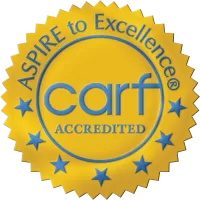Equity & Inclusion
Parrott Creek remains committed to policies and strategies that promote diversity, equity and inclusion in all our work: with our youth and their families; within the organization as a whole; and with our stakeholders and community partners. We are firmly committed to meeting four overriding equity objectives:
- Ensuring that our programs, services and “how we work” are culturally responsive and anti-racist
- Recruiting, retaining and promoting staff and board members who reflect the communities and backgrounds of our client population
- Developing strong, mutually supportive BIPOC and LGBTQIA+ community partnerships
- Embedding an anti-racist ethos across the organization
We have several key positions, including our BIPOC Resource Liaison and an Indigenous Community Liaison, who help guide an ongoing process of learning, acknowledging our biases and continually adapting our services and policies to eliminate discrimination and disparities. Weekly team and leadership meetings and monthly management meetings always have a DEI agenda item and staff are required to undertake annual DEI trainings.
We follow the definition of Culturally Responsive Services adapted from Mi Hermana’s Keeper Toolkit, 2017 to ensure that we:
- Speak to young people and families in preferred language whenever possible and able
- Learn about family and community cultural values and discuss these in service planning
- Incorporate cultural heritage into programs and service content
- Factor in each person’s strengths and characteristics
- Train staff to uphold key cultural values of different ethnicities
- Ask youth and/or families how they want to be respected and validated
- Support staff in validating the opinions of both children and families
- Provide services with a relational-cultural lens that upholds their community values
Parrott Creek:
- Has a stated policy of anti-racism that has been board approved and is one of four equity-related strategic aims
- Ensures the voice and decision making power of BIPOC, LGBTQIA+, disabled individuals and those with lived experience is represented at board level and in leadership positions
- Empowers staff to hold management and Parrott Creek overall accountable for continuing to develop a culture centered on equity and inclusion in the workplace and our service delivery
- Embraces restorative justice approaches for receiving and incorporating feedback from persons with lived experience into program design, case planning and service outcomes
- Engages with and seeks feedback from culturally specific organizations to review, critique and help improve our services so as to be culturally responsive
- Provides equity-related salary enhancements for bilingual and bicultural staff who can bring those additional skills to benefit our participants
Our Board of Directors is 36% women, 27% BIPOC and 54% have lived experience of the issues and needs of our participants. Our board is advised by our Youth Council, which represents program participants, and they have a dedicated board member liaison as well as a standing agenda item at each board meeting. Our Leadership & Management Team is 60% women, 30% BIPOC and 50% with lived experience which includes experience of homelessness, substance misuse, behavioral health needs, poverty and discrimination.
Our support of children and families is based on a client-led approach which incorporates regular feedback process for clients to share their experiences of our services, to inform program design and to be incorporated into our decision-making either through the Youth Council or directly to the Board of Directors.


